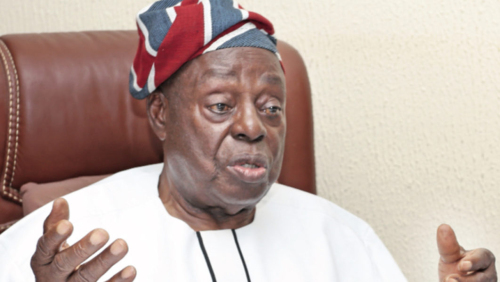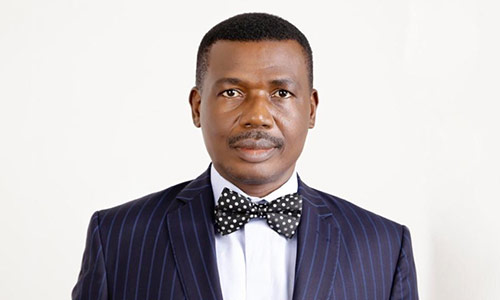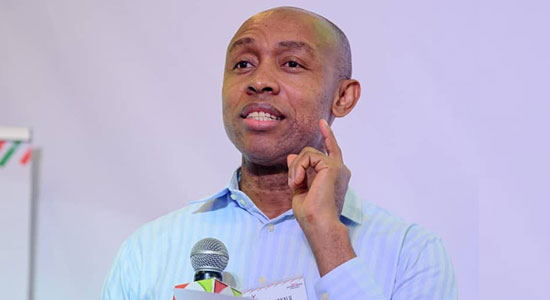Electoral Act: Issue-Based Campaigns Not Feasible Under 150-Day Campaign Period

POLITICIANS across the country have begun purchasing nomination forms from their political parties in preparation for the 2023 general elections, with some who have yet to declare their intention to run for public office expected to do so in the coming days. Following the collection of forms, political parties will hold primaries in which candidates for the general election will be chosen. This schedule corresponds to the Independent National Electoral Commission’s (INEC) timetable for the 2023 elections. The presidential and National Assembly elections will be held on February 25, 2023, while the Governorship and State House of Assembly elections will be held on March 11, 2023, according to the timetable. All campaigns must end 24 hours prior to each election under the provisions of the Electoral Act of 2022 (as amended). Parties and their candidates have a total of 150 days to campaign. The question that naturally arises is whether the allotted 150 days are sufficient for a thorough and issue-based campaign, given that Nigerians do not yet know who will run for election in February 2023 on the platform of their respective parties.
Essence of elections campaign
Without a doubt, the campaign period provides many opportunities for both candidates and voters in the run-up to elections. While candidates are expected to use the campaign period to sell themselves and their ideas to voters, voters are expected to use the campaign period to evaluate candidates and decide whether or not they will vote for them. As a result, campaigns in all jurisdictions attract adequate and elaborate preparations. Professional firms, for example, exist in the United States to assist candidates in organizing their campaigns. To accomplish this, candidates frequently obtain comprehensive voter data, which includes information that allows the candidate to devise strategies for persuading potential voters of his suitability for the desired position. As a result, if the data indicates that the electorate is primarily made up of women or unemployed youth, the candidate will devote some of his strategies to issues affecting women and employment. President Barack Obama and Senator John McCain focused on several issues during the campaign for the November 2008 presidential elections in the United States, including unemployment, inflation, and foreign policy, which, according to data available to them, were of utmost importance to the electorates.
Short campaign time in Nigeria does not allow for issue based campaigns
However, in Nigeria, experience has shown that campaigns are frequently used to focus attention not on issues that deserve it, but on negative issues that should not be the focus of any serious election campaign. In my opinion, the short time allowed by law for campaigns in Nigeria has aided this development to a large extent. As previously stated, campaign elections begin 150 days before the election and must end 24 hours before the election, according to Section 94(1) of the Electoral Act 2022 (as amended). While this 150-day period may be sufficient for candidates for State Houses of Assembly, National Assembly, and possibly even Governorships of States to canvass their political constituencies in order to persuade voters to vote in their favor, I doubt it will be sufficient for presidential candidates to canvass the length and breadth of Nigeria and launch meaningful campaigns.
In reality, in Nigerian presidential campaigns, candidates make brief stops in each state capital to speak at rallies organized by party supporters. I am aware, however, that not all Nigerians of voting age are card-carrying members of political parties. As a result, a large number of Nigerians who will vote in the election for President of the Federal Republic of Nigeria on February 25, 2023 will be absent from rallies held in their state capitals. In saying this, I am cognizant of the fact that technological advancements have made it possible for politicians to communicate their ideas to the public without having to physically visit most of the places where they will be expected to garner votes during the election. In fact, social media platforms like Facebook and Twitter have become important tools for information dissemination. However, in technologically advanced countries such as the United States of America, France, the United Kingdom, and other parts of Europe, politicians still recognize and value the importance of speaking to small groups of people—often referred to as town hall meetings—in order to get up close and personal with voters. House-to-house calls by campaign staff and even candidates themselves are another way to accomplish this.
The above, however, is not possible due to the short campaign period in Nigeria. As a result, rather than emphasizing why they should be elected, politicians resort to negative tactics, emphasizing why the opposition candidates should not be elected. Unfortunately, this scenario frequently corresponds to the needs of Nigerian print and electronic media, which have failed to encourage issue-based campaigns over time and, on the contrary, appear to revel in negativity, all in the false belief that negativity sells faster and thus is more profitable. However, the political system is always worse off as a result of it all. The fact that most political parties choose their candidates at their National Conventions does not help matters. Candidates in the United States of America compete in their respective parties’ primaries on a state-by-state basis, winning delegates along the way. Although described as costly, this system ensures that candidates’ messages reach all 50 states and that they are heard before their political parties choose them to fly their flags during the elections. Because the weak candidates would have dropped out along the way after failing in some states’ primaries, this system ensures that only strong and serious candidates make it to the elections.
Finally, the National Assembly should reconsider the 150-day campaign limit, particularly as it pertains to presidential elections. I believe that a six-month campaign period will greatly assist Nigerians in properly evaluating candidates and asking them and their political parties questions about their agenda for the country. A situation in which candidates are limited to a short period of time, allowing only brief stops in some states, with the result that Nigerians may not even know the candidates well enough on election day is not good for democracy.
AARE AFE BABALOLA, SAN, OFR, CON



